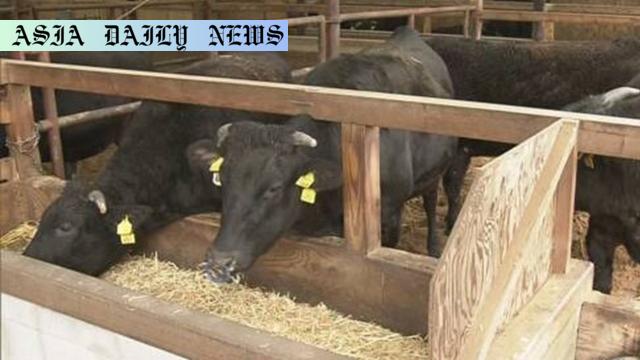Japanese beef – Taiwan is set to lift restrictions on Japanese beef imports, except for certain parts, ensuring increased market expansion.
Taiwan plans to lift age-based restrictions on Japanese beef imports.
Ban on specific parts like brains and spinal cords remains unchanged.
Changes aim to boost Japanese beef market share in Taiwan.
Public feedback will be solicited over a 60-day period for final decisions.

Introduction to the Decision on Japanese Beef Imports
In a significant development for the global beef industry, Taiwanese authorities have announced a plan to lift import restrictions on Japanese beef. This move signifies a shift in Taiwan’s policies, considering the nation had implemented a complete ban on Japanese beef following a BSE (mad cow disease) outbreak in 2001. Although a partial lift of the ban occurred in 2017, it was limited by the stipulation that beef from Japan had to originate from cattle aged 30 months or younger. This latest revision, announced on Wednesday, proposes allowing imports without age restrictions, though limitations will remain on certain parts such as brains and spinal cords for safety reasons.
Background: History of Restrictions on Japanese Beef
The history of Taiwan’s restrictions on Japanese beef is rooted in public health concerns. Following the outbreak of mad cow disease in 2001, Taiwan was one of many countries to impose strict bans on beef imports from affected regions. Although Japan’s rigorous food safety procedures eventually won international approval, it wasn’t until 2017 that Taiwan decided to relax its ban partially. Even then, the stipulations necessitated that imported beef be from cattle aged no more than 30 months. These measures, while ensuring safety, limited the availability and variety of Japanese beef in Taiwan.
The Current Proposal and Its Implications
Under the proposed regulations, Taiwan will remove the age restriction currently in place for Japanese beef imports. Authorities have emphasized that bans on specific parts, such as brain and spinal cord tissues, will remain to mitigate any lingering health concerns. The Food and Drug Administration (FDA) of Taiwan unveiled this draft revision and will now seek public input for a 60-day period before finalizing the amendments. This development is expected to bolster the presence of Japanese beef in Taiwanese markets, introducing more diversity for consumers and fostering economic benefits.
Impact on Japanese Beef Market Growth
Removing these restrictions may significantly expand the market for Japanese beef in Taiwan. Industry experts believe that this move will strengthen the competitiveness of Japanese beef, allowing it to compete more effectively with imports from other countries, such as the United States and Australia. Consumers, on the other hand, stand to benefit from increased choice and access to premium cuts of Japanese beef, known internationally for its quality, flavor, and marbling.
Challenges Ahead
While the proposed changes are seen as a positive step, implementing them is not without challenges. Public opinion during the 60-day consultation period might reveal lingering concerns over food safety. Additionally, Taiwan will need to implement strict monitoring mechanisms to ensure that imported beef consistently meets safety standards. Failure to address these issues could lead to resistance from both the public and certain industry stakeholders.
Conclusion: A Landmark Move for Trade and Consumer Choice
Taiwan’s decision to lift restrictions on Japanese beef imports is a milestone in its trading and food safety policies. By easing these regulations, Taiwan not only strengthens its economic and cultural ties with Japan but also enhances choices available to consumers. The move aligns with global trends toward facilitating international trade while maintaining high safety standards. The coming months, particularly during the public review phase, will be crucial in determining the long-term impact of this decision.
Commentary
Significance of Removing the Age Restriction
The decision by Taiwan to lift the age restrictions on Japanese beef represents a pragmatic and forward-thinking approach to trade and food safety. Japanese beef, renowned globally for its exceptional quality and taste, has long been a preferred choice for consumers worldwide. By choosing to relax these limitations, Taiwan is signaling its trust in Japan’s food safety measures. It’s an exciting opportunity for beef lovers in Taiwan to experience a broader variety of premium Japanese beef products that were previously unavailable.
Economic and Market Implications
From a commercial perspective, this decision could have substantial positive implications for both Japan and Taiwan. For Japan, it opens up a significant market for its beef exports, helping to diversify its trade partners. Taiwan, on the other hand, gains the potential to boost its local economy by facilitating a more vibrant food sector. Restaurants, retailers, and distributors stand to benefit, translating these gains to broader economic progress. The move also enhances Taiwan and Japan’s bilateral relationship, fortifying economic ties between the two nations.
Challenges and the Importance of Public Trust
Despite the apparent benefits, challenges remain. The Taiwanese government must address public concerns regarding food safety comprehensively. Transparency about testing and safety measures will be critical to reassure consumers. It’s also essential to uphold stringent monitoring post-importation to maintain consistent quality and safety. The public consultation phase offers an opportunity to gauge consumer sentiments and ensure the decision aligns with public expectations.
A Pioneering Step in International Trade
Overall, this announcement marks Taiwan’s proactive engagement in global trade practices. By facilitating the import of high-quality Japanese beef, Taiwan demonstrates its commitment to giving consumers greater choice while continuing to prioritize safety. This move also reinforces the importance of thoughtful policymaking, as balancing economic growth with public welfare remains a top priority. The coming months will undoubtedly set a precedent for similar decisions in the international trade arena.


